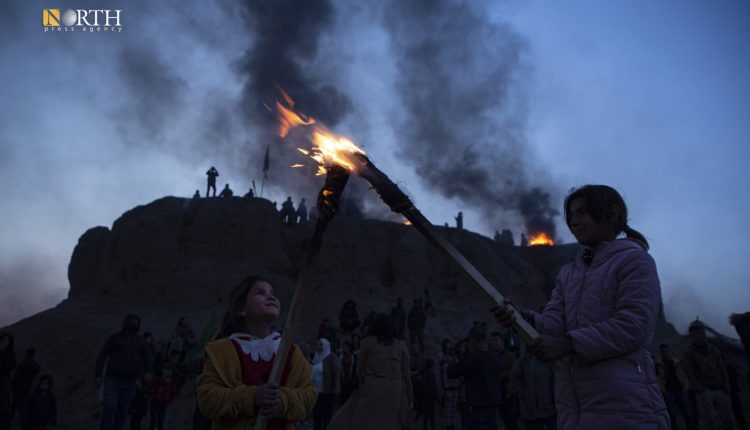Exclusive: North Press Publishes Draft Political Document for Syrian Kurdish Conference
By Orhan Qarahman
QAMISHLI, Syria (North Press) – North Press has obtained the draft political document prepared by the preparatory committee for the upcoming “Kurdish Conference” in Syria. The document outlines a vision for both the broader Syrian national framework and Kurdish national aspirations.
The preparatory committee comprises the “National Unity Parties” and Kurdish parties outside the existing frameworks in Syria. The Kurdish National Council (ENKS) has been invited to participate, though it has yet to decide on its stance, according to committee sources.
Key Provisions in the Draft Document
1. Syrian National Framework
The document affirms Syria as a democratic, multi-ethnic, multi-religious state that guarantees the rights of all its components, including Arabs, Kurds, Syriacs, Assyrians, Circassians, Turkmen, Alawites, Druze, Yazidis, and Christians.
The draft advocates:
A parliamentary system with political pluralism and peaceful power transfer.
A decentralized political system ensuring fair distribution of power and wealth between central and regional authorities.
Commitment to international human rights conventions and equal citizenship.
2. Kurdish National Rights
The document calls for:
Constitutional recognition of Kurdish political and administrative unity in Syria.
Official status for the Kurdish language, alongside Arabic.
Preservation of historical Kurdish demographics and protection from demographic engineering.
Recognition of the Autonomous Administration of North and East Syria (AANES) as a model for decentralization.
3. Education and Cultural Rights
The right to Kurdish-language education at all levels.
Recognition of AANES’ educational system and curriculum.
Establishment of Kurdish media, research centers, and universities.
4. Syrian Democratic Forces (SDF) and Security Structure
Recognition of the Syrian Democratic Forces (SDF) as part of the Syrian national army.
Women’s Protection Units (YPJ) as an integral defense force for women and society.
Recognition of the fallen fighters of Rojava as martyrs of the Syrian revolution.
5. Political Symbols and Identity
A national flag, anthem, and name for Syria that reflect its multi-ethnic composition.
Official recognition of Yazidism as a religion in Syria.
Full gender equality in all state institutions.
Protection of children’s rights as per UN and Amnesty International standards.
6. Turkish Occupation and Territorial Integrity
Complete withdrawal of Turkish forces from Afrin, Serekaniye (Ras al-Ain), and Tel Abyad.
Removal of Turkey-backed armed groups and reversal of demographic changes.
Establishment of a nationwide ceasefire as a foundation for national dialogue.
7. Kurdish Representation and Political Participation
Fair Kurdish representation in Syria’s legislative, judicial, executive, and security institutions.
Newroz (March 21) to be recognized as a national holiday.
8. Abolishing Discriminatory Policies
Reversal of Arabization projects such as the “Arab Belt” policy.
Restoration of Syrian nationality to stateless Kurds from the 1962 census.
Cancellation of the 1998 Adana Agreement between Turkey and Syria.
Fair allocation of resources for the reconstruction and development of historically marginalized Kurdish areas.
A preparatory committee member told North Press that all provisions in the document are open to discussion and will be debated at the Kurdish Conference.
The conference aims to bring together Kurdish political forces, ensure Kurdish representation in Syria’s future governance, and seek international sponsorship for a national dialogue process.

